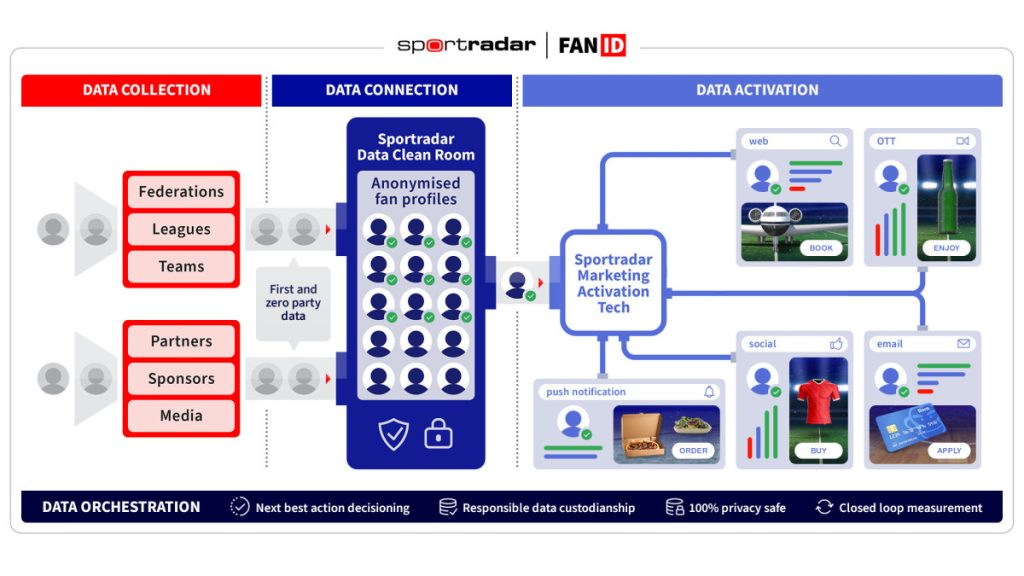While it has not been discussed much, digital marketing is preparing for a major shift this year as browsers like Chrome, Safari and Firefox move to disable third-party cookies. With the advent of the General Data Privacy Regulation (GDPR) and the California Consumer Privacy Act (CCPA) and potentially more legislation on the way, the internet is starting to approach personal privacy differently.
Accordingly, Sportradar is rolling out a new potential solution to the issue called Sportradar FanID. The marketing solution is what Sportradar is terming the “first data clean room for the sports industry.”
Per a press release from the data company, Sportradar FanID is a four-step process starting with data collection. Participating brands capture data using first-party cookies. Then, in the data connection phase, that data is shared in the FanID clean room. Being mindful of privacy, this data will be anonymized.
Next, in the data activation phase, the participating brands can utilize Sportradar’s proprietary tech to generate personalized marketing for consumers.
Finally, in the data orchestration phase, those ads are disseminated to customers and tracked to measure performance.
Here is a breakdown from Sportradar:

“The crumbling of the third-party cookie represents a significant opportunity for rightsholders and brands to gain a greater understanding of fans, while also enabling more efficient and seamless delivery of digital advertising content,” said Sportradar EVP of Fan Engagement Rainer Geier.
“We are the industry leader and partner to many clients around the world, which has allowed us to gather the most comprehensive understanding of fan behavior and insights. Sportradar FanID is an example of how we are extending our innovative capabilities, and it will serve as a catalyst for further product innovation and increased monetization potential.”
The hope is Sportradar FanID can provide a solution to the change in cookie policy that can replicate the benefits gained from third-party cookies while still maintaining and respecting the privacy of consumers.













